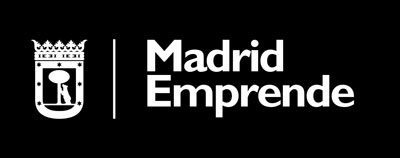- Digital certificates allow users and companies to identify themselves to third parties and sign documentation electronically
- The main advantage is that all signed documents have full legal guarantees
What is a digital certificate?
Digital certificates are electronic documents, issued by a certification authority, that allow users and companies to identify themselves to third parties and sign documentation electronically.
The main advantage of the digital certificate is that all signed documents have full legal guarantees. In fact, the digital certificate is a system that serves to verify your real identity unequivocally on-line when carrying out procedures with the Public Administration. Therefore, it is a substitute for the usernames and passwords that exist in the Public Administration, since the system of other websites does not always have to verify that it is you.
What are they for
Digital certificates allow:
- Speed up and reduce the cost of negotiations with the Public Administration.
- Increased productivity and competitiveness of the company.
- Simplification and automation of document management.
- Reduction of errors by eliminating manual procedures.
- Encourage the elimination of printed documents.
- Comply with legal obligations.
Certificate types
According to the identity
- Natural person certificates.
They are those that incorporate the identity of a physical subject or citizen. It is aimed at citizens (that is, physical third parties) and is basically intended for personal procedures, although, under certain circumstances, it can be used in the professional field.
- Legal entity certificates.
They incorporate a legal identity. Its use is designed for all types of organizations, whether they are companies, administrations or other types of organizations, all of them with a legal identity.
- Entity certificates without legal personality.
They link their subscriber with signature verification data and confirm their identity to be used only in communications and data transmissions by electronic, computer and telematic means in the tax field.
According to the scope of application
- Server certificate.
- Company membership certificate.
- Representative certificate.
- Proxy certificate.
- Company seal certificate.
- Electronic invoice certificate.
- Collegiate certificate.
According to the support
- certificates software.
An electronic certificate is a digital document that can be saved on a USB stick, on a computer (in the certificate store) or on the hard drive. This certificate is known as a certificate. software.
- certificates hardware.
A certificate can also be stored on a cryptographic card, which is a card that incorporates an electronic chip. A clear example of a cryptographic card is the electronic DNI. On these cards it is possible to store one or more electronic certificates, which is known as a certificate hardware.
How to request the FNMT certificate
The certificates issued by the Fábrica Nacional de Moneda y Timbre (FNMT) can be installed in any browser, both in Chrome, Firefox or Edge. It can even be installed on mobile easily.
Access the page FNMT website and select the type of certificate you need to request:
- Electronic certificate of citizen or natural person.
- Electronic company or representative certificate (for the latter, three types of certificate are issued: for a sole or joint administrator, for a legal person or for an entity without legal personality).
- Electronic certificates of the public sector.
Finally, follow the detailed steps on the web for each type of certificate.

